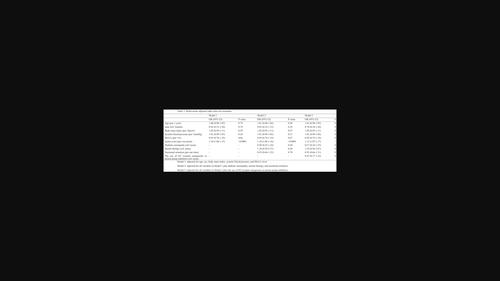当前位置:
X-MOL 学术
›
J. Diabetes Investig.
›
论文详情
Our official English website, www.x-mol.net, welcomes your
feedback! (Note: you will need to create a separate account there.)
Association between gastrointestinal symptoms and insomnia in patients with type 2 diabetes: The KAMOGAWA‐DM cohort study
Journal of Diabetes Investigation ( IF 3.1 ) Pub Date : 2024-03-06 , DOI: 10.1111/jdi.14168 Megumi Minamida 1 , Hiroshi Okada 1 , Masahide Hamaguchi 1 , Junya Hironaka 1 , Yuriko Kondo 1 , Hanako Nakajima 1 , Takuro Okamura 1 , Takafumi Sennmaru 1 , Naoko Nakanishi 1 , Emi Ushigome 1 , Michiaki Fukui 1
Journal of Diabetes Investigation ( IF 3.1 ) Pub Date : 2024-03-06 , DOI: 10.1111/jdi.14168 Megumi Minamida 1 , Hiroshi Okada 1 , Masahide Hamaguchi 1 , Junya Hironaka 1 , Yuriko Kondo 1 , Hanako Nakajima 1 , Takuro Okamura 1 , Takafumi Sennmaru 1 , Naoko Nakanishi 1 , Emi Ushigome 1 , Michiaki Fukui 1
Affiliation

|
Aims/IntroductionGastrointestinal disturbances and insomnia affect the quality of life of patients with diabetes. However, the relationship between gastrointestinal symptoms and insomnia in patients with diabetes has rarely been analyzed. Thus, aim of this study was to investigate the association between gastrointestinal symptoms and insomnia in patients with type 2 diabetes mellitus.Materials and MethodsThis cross‐sectional study of patients with type 2 diabetes was carried out from January 2014 to April 2022 using the database of the KAMOGAWA‐DM cohort study. Patient data were collected using a self‐administered questionnaire, and the Izumo Scale and the Athens Insomnia Scale were used to assess gastrointestinal symptoms and insomnia, respectively. Multivariate logistic regression analysis was carried out to determine the association between gastrointestinal symptoms and insomnia.ResultsA total of 175 patients with type 2 diabetes were included in this study. Patients with insomnia had higher Izumo scores than those without insomnia (P < 0.0001). Izumo scale score was significantly associated with insomnia in patients with type 2 diabetes, even after adjustment for age, body mass index, systolic blood pressure, glycated hemoglobin level, neuropathy, insulin therapy and nocturia (odds ratio 1.10, 95% confidence interval [CI] 1.06–1.16). Each gastrointestinal symptom assessed using the Izumo scale was associated with insomnia. The odds ratios of heartburn, stomach pain, lethargy, constipation and diarrhea for insomnia were 1.32 (95% CI 1.13–1.55), 1.38 (95% CI 1.16–1.63), 1.33 (95% CI 1.13–1.56), 1.21 (95% CI 1.08–1.36) and 1.29 (95% CI 1.12–1.47), respectively.ConclusionsGastrointestinal symptoms are strongly associated with sleep disturbances in patients with type 2 diabetes.
中文翻译:

2 型糖尿病患者胃肠道症状与失眠之间的关联:KAMOGAWA-DM 队列研究
目的/简介胃肠道紊乱和失眠影响糖尿病患者的生活质量。然而,糖尿病患者胃肠道症状与失眠之间的关系却很少被分析。因此,本研究的目的是调查 2 型糖尿病患者胃肠道症状与失眠之间的关联。 材料和方法这项针对 2 型糖尿病患者的横断面研究于 2014 年 1 月至 2022 年 4 月使用数据库进行KAMOGAWA-DM 队列研究。使用自填问卷收集患者数据,并分别使用出云量表和雅典失眠量表评估胃肠道症状和失眠。采用多因素logistic回归分析确定胃肠道症状与失眠之间的关联。结果本研究共纳入175例2型糖尿病患者。失眠患者的 Izumo 评分高于非失眠患者(磷< 0.0001)。即使在调整了年龄、体重指数、收缩压、糖化血红蛋白水平、神经病变、胰岛素治疗和夜尿后,Izumo 量表评分仍与 2 型糖尿病患者的失眠显着相关(比值比 1.10,95% 置信区间 [CI]) ] 1.06–1.16)。使用出云量表评估的每种胃肠道症状都与失眠相关。失眠导致胃灼热、胃痛、嗜睡、便秘和腹泻的比值比分别为 1.32 (95% CI 1.13–1.55)、1.38 (95% CI 1.16–1.63)、1.33 (95% CI 1.13–1.56)、1.21 (95 % CI 1.08–1.36) 和 1.29 (95% CI 1.12–1.47)。结论 2型糖尿病患者胃肠道症状与睡眠障碍密切相关。
更新日期:2024-03-06
中文翻译:

2 型糖尿病患者胃肠道症状与失眠之间的关联:KAMOGAWA-DM 队列研究
目的/简介胃肠道紊乱和失眠影响糖尿病患者的生活质量。然而,糖尿病患者胃肠道症状与失眠之间的关系却很少被分析。因此,本研究的目的是调查 2 型糖尿病患者胃肠道症状与失眠之间的关联。 材料和方法这项针对 2 型糖尿病患者的横断面研究于 2014 年 1 月至 2022 年 4 月使用数据库进行KAMOGAWA-DM 队列研究。使用自填问卷收集患者数据,并分别使用出云量表和雅典失眠量表评估胃肠道症状和失眠。采用多因素logistic回归分析确定胃肠道症状与失眠之间的关联。结果本研究共纳入175例2型糖尿病患者。失眠患者的 Izumo 评分高于非失眠患者(磷< 0.0001)。即使在调整了年龄、体重指数、收缩压、糖化血红蛋白水平、神经病变、胰岛素治疗和夜尿后,Izumo 量表评分仍与 2 型糖尿病患者的失眠显着相关(比值比 1.10,95% 置信区间 [CI]) ] 1.06–1.16)。使用出云量表评估的每种胃肠道症状都与失眠相关。失眠导致胃灼热、胃痛、嗜睡、便秘和腹泻的比值比分别为 1.32 (95% CI 1.13–1.55)、1.38 (95% CI 1.16–1.63)、1.33 (95% CI 1.13–1.56)、1.21 (95 % CI 1.08–1.36) 和 1.29 (95% CI 1.12–1.47)。结论 2型糖尿病患者胃肠道症状与睡眠障碍密切相关。











































 京公网安备 11010802027423号
京公网安备 11010802027423号